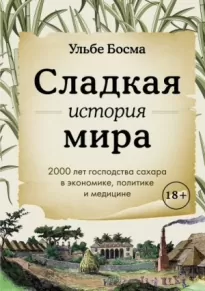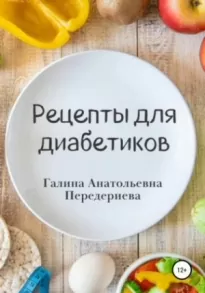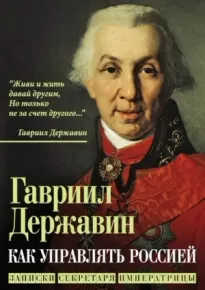Сладкая история мира. 2000 лет господства сахара в экономике, политике и медицине

- Автор: Ульбе Босма
- Жанр: Научная литература / Исторические приключения / История: прочее
Читать книгу "Сладкая история мира. 2000 лет господства сахара в экономике, политике и медицине"
14. Слаще природы
1 Sergey Gudoshnikov, Linday Jolly, and Donald Spence, The World Sugar Market (Cambridge: Elsevier Science, 2004), 11–12.
2 Won W.Koo, «Alternative U.S. and EU Sugar Trade Liberalization Policies and Their Implications,» Review of Agricultural Economics 24, no. 2 (2002): 338.
3 D.Gale Johnson, The Sugar Program: Large Costs and Small Benefits (Washington, DC: American Enterprise for Public Policy, 1974), 6.
4 Carolyn Crist, «Few Smokers Know about Added Sugar in Cigarettes,» Reuters, October 26, 2018, https://www.reuters.com/article/us-health-cigarettes-sugar-idUSKCN1_N02UC; Robert Proctor, Golden Holocaust: Origins of the Cigarette Catastrophe and the Case for Abolition (Berkeley: University of California Press, 2011), 33–34.
5 William Watts, «On the Proximate Cause of Diabetes Mellitus,» The Lancet 45, no. 1129 (1845): 438.
6 Steven Blankaart, De Borgerlyke Tafel (Amsterdam: J. ten Hoorn, 1683), 41–42, 102.
7 Gary Taubes, The Case against Sugar (London: Portobello Books, 2018), 240.
8 Jean Anthelme Brillat-Savarin, Physiologie du goût ou méditations de gastronomie transcendante (Paris: A. Sautelet, 1828), 106, 221.
9 Leone Levi, On the Sugar Trade and Sugar Duties: A Lecture Delivered at King’s College, London, Feb. 29, 1864 (London: Effingham Wilson, 1864), 12.
10 W.Banting, Letter on Corpulence: Addressed to the Public, with Prefatory Remarks by the Author Copious Information from Correspondents and Confirmatory Evidence of the Benefit of the Dietary System Which He Recommended to Public Notice. (London: Harrison&Sons, 1863).
11 John Harvey, Corpulence, Its Diminution and Cure without Injury to Health (London: Smith, 1864), 96.
12 Thomas Low Nichols, Eating to Live: The Diet Cure: An Essay on the Relations of Food and Drink to Health, Disease and Cure (London, 1877), 43–45.
13 Taubes, The Case, 116.
14 Gary Taubes, Good Calories, Bad Calories (New York: Knopf, 2007), ix, x.
15 John Yudkin, Pure, White and Deadly (London: Viking, 2012), vii.
16 John Yudkin, «Sugar and Disease,» Nature 239, no. 5369 (1972): 197; Taubes, The Case, 6–7; Richard J.Johnson et al., «Potential Role of Sugar (Fructose) in the Epidemic of Hypertension, Obesity and the Metabolic Syndrome, Diabetes, Kidney Disease, and Cardiovascular Disease,» American Journal of Clinical Nutrition 86, no. 4 (2007): 901; H.B.Anderson, «Diet in Its Relation to Disease,» Public Health Journal 3, no. 12 (1912): 713.
17 Manuel Correia de Andrade, The Land and People of Northeast Brazil (Albuquerque: University of New Mexico Press, 1980), 99, 124; William Arthur Lewis, Labour in the West Indies the Birth of a Workers’ Movement (London: New Beacon Books, 1977), 16; Deborah Jean Warner, Sweet Stuff: An American History of Sweeteners from Sugar to Sucralose (Washington, DC: Smithsonian Institution Scholarly Press / Rowman and Littlefield, 2011), 33.
18 Encyclopædia Iranica s.v., «Sugar,» дата последнего изменения: 20.07.2009, https://www.iranicaonline.org/articles/sugar-cultivation.
19 C.J.Robertson, «The Italian Beet-Sugar Industry,» Economic Geography 14, no. 1 (1938): 13–14.
20 Romuald Le Pelletier de Saint-Rémy, Le questionnaire de la question des sucres (Paris: Guillaumin, 1877), 216–220.
21 Charles Robequain, «Le sucre dans l’Union française,» Annales de Géographie 57, no. 308 (1948): 323, 333; Koo, «Alternative U.S. and EU Sugar Trade,» 338.
22 John Perkins, «Sugar Production, Consumption and Propaganda in Germany, 1850–1914,» German History 15, no. 1 (1997): 25–30.
23 Wendy A.Woloson, Refined Tastes: Sugar, Confectionery, and Consumers in NineteenthCentury America (Baltimore, MD: Johns Hopkins University Press, 2002), 36–37, 54, 55, 118.
24 Henry Mayhew, London Labour and the London Poor, vol. 1 (New York: Dover, 1968), 202–203.
25 Darra Goldstein, The Oxford Companion to Sugar and Sweets (Oxford: Oxford University Press, 2015), 758; Robert H. Lustig, Fat Chance: Beating the Odds against Sugar, Processed Food, Obesity, and Disease (New York: Penguin Group, 2013), 261; Paul Pestano, Etan Yeshua, and Jane Houlihan, Sugar in Children’s Cereals: Popular Brands Pack More Sugar Than Snack Cakes and Cookies (Washington, DC: Environmental Working Group, 2011), 5.
26 Erika Rappaport, A Thirst for Empire: How Tea Shaped the Modern World (Princeton, NJ: Princeton University Press, 2017), 71–74, 81–82.
27 Philip B.Mason, Xiaohe Xu, and John P.Bartkowski, «The Risk of Overweight and Obesity among Latter-Day Saints,» Review of Religious Research 55, no. 1 (2013): 132.
28 Taubes, The Case, 42.
29 Goldstein, The Oxford Companion, 87–88; Samira Kawash, Candy: A Century of Panic and Pleasure (New York: Faber and Faber, 2013), 85.
30 April Merleaux, Sugar and Civilization: American Empire and the Cultural Politics of Sweetness (Chapel Hill: University of North Carolina Press, 2015), 213.
31 Goldstein, The Oxford Companion, 87.
32 Irving V.Sollins, «Sugar in Diet Part I: An Educational Problem,» Journal of Educational Sociology 3, no. 6 (1930): 345.
33 Perkins, «Sugar Production,» 31.
34 Julia Csergo, «Food Consumption and Risk of Obesity: The Medical Discourse in France 1850–1930,» in The Rise of Obesity in Europe: A Twentieth Century Food History, ed. Derek J.Oddy, P.J.Atkins, and Virginie Amilien (Farnham, England: Ashgate, 2009), 169–170; Martin Bruegel, «A Bourgeois Good?: Sugar, Norms of Consumption and the Labouring Classes in Nineteenth-Century France,» in Food, Drink and Identity: Cooking, Eating and Drinking in Europe since the Middle Ages, ed. Peter Scholliers (Oxford: Berg, 2001), 107–110; Maurice Halbwachs, L’évolution des besoins dans les classes ouvriиres (Paris: F. Alcan, 1933), 122.
35 Hans Jürgen Teuteberg and Günter Wiegelmann, Der Wandel der Nahrungsgewohnheiten unter dem Einfluss der Industrialisierung (Göttingen: Vandenhoeck and Ruprecht, 1972), 299.
36 Halbwachs, L’évolution des besoins, 122; Bruegel, «A Bourgeois Good?» 111.
37 Perkins, «Sugar Production,» 32; Siegmund Ziegler, «Die Weltzuckerproduktion während des Krieges und der Zuckerpreis,» Weltwirtschaftliches Archiv 15 (1919): 53–54; Kawash, Candy, 105.
38 Merleaux, Sugar and Civilization, 59, 65, 68–69; Kawash, Candy, 107.
39 Barak Kushner, «Sweetness and Empire: Sugar Consumption in Imperial Japan,» in The Historical Consumer: Consumption and Everyday Life in Japan, 1850–2000, ed. Penelope Francks and Janet Hunter (New York: Palgrave Macmillan, 2012), 140–141.
40 Rappaport, A Thirst for Empire, 122, 139, 152.
41 Joe Bertram Frantz, «Infinite Pursuit: The Story of Gail Borden» (PhD diss., University of Texas, 1948), 68–69.
42 Laura Mason, Sweets and Candy: A Global History (London: Reaktion Books, 2018), 83–86.
43 Goldstein, The Oxford Companion, 753; Harvey Washington Wiley, Foods and Their Adulteration: Origin, Manufacture, and Composition of Food Products: Infants’ and Invalids’ Foods: Detection of Common Adulterations (Philadelphia: P.Blakiston’s Son, 1917), 485.
44 Gail Hollander, «Re-Naturalizing Sugar: Narratives of Place, Production and Consumption,» Social&Cultural Geography 4, no. 1 (2003): 64.
45 Kawash, Candy, 98, 112.
46 Kawash, Candy, 55, 67.
47 Warner, Sweet Stuff, 44, 109–119, 133.
48 Wiley, Foods and Their Adulteration, 470.
49 Warner, Sweet Stuff, 20, 24–25.
50 Ulbe Bosma, The Sugar Plantation in India and Indonesia: Industrial Production, 1770–2010 (Cambridge: Cambridge University Press, 2013), 171.
51 Alice Ross, «Health and Diet in 19th-Century America: A Food Historian’s Point of View,» Historical Archaeology 27, no. 2 (1993): 47.
52 Goldstein, The Oxford Companion, 95–96.
53 Woloson, Refined Tastes, 214.
54 Merleaux, Sugar and Civilization, 106.
55 Ziegler, «Die Weltzuckerproduktion,» 63, 65.
56 Merleaux, Sugar and Civilization, 19.
57 Lustig, Fat Chance, 172.
58 Goldstein, The Oxford Companion, 757.
59 Mark Pendergrast, For God, Country, and Coca-Cola: The Definitive History of the Great American Soft Drink and the Company That Makes It (London: Weidenfeld and Nicolson, 1993), 238.
60 Goldstein, The Oxford Companion, 737.
61 Kushner, «Sweetness and Empire,» 135–136, 139.
62 K.Walden, «The Road to Fat City: An Interpretation of the Development of Weight Consciousness in Western Society,» Historical Reflections 12, no. 3 (1985): 332.
63 Merleaux, Sugar and Civilization, 147; Kawash, Candy, 191.
64 Woloson, Refined Tastes, 194.
65 Mildred Maddocks and Harvey Washington Wiley, The Pure Food Cook Book: The Good Housekeeping Recipes, Just How to Buy – Just How to Cook (New York: Hearst’s International Library, 1914), 11, 237.
66 См.: Weston A.Price, Nutrition and Physical Degeneration (Redland, CA: P.B.Hoeber, 1939); Merleaux, Sugar and Civilization, 221–222.
67 Taubes, The Case, 125.
68 Yudkin, Pure, White and Deadly, 127.
69 Sollins, «Sugar in Diet Part I,» 342, 345–346; Irving V.Sollins, «Sugar in Diet Part II: An Experiment in Instruction in Candy Consumption,» Journal of Educational Sociology 3, no. 9: 548.
70 Revenue Revision of 1943: Hearings before the Committee of Ways and Means House of Representatives. Seventy-Eighth Congress. First Session, 1014–1031 (Washington, DC: Government Printing Office, 1943).
71 Hollander, «Re-Naturalizing Sugar,» 65.
72 Encourage Sugar Consumption, Sugar (Including Facts about Sugar and the Planter& Sugar Manufacturer), June 25–27, 1947.
73 Marion Nestle, «Food Industry Funding of Nutrition Research: The Relevance of History for Current Debates,» JAMA Internal Medicine 176, no. 11 (2016): 1685–1686.
74 Sanjay Basu et al., «The Relationship of Sugar to Population-Level Diabetes Prevalence: An Econometric Analysis of Repeated Cross-Sectional Data,» PLoS ONE 8, no. 2: e57873 (p. 6). Краткое описание методологических недостатков в проекте Киза, см.: Lustig, Fat Chance, 111.
75 Yudkin, Pure, White and Deadly, 41; Pana Wilder, «No One Profits from Candy in the Schools,» Middle School Journal Middle School Journal 15, no. 4 (1984): 18; Marion Nestle, Food Politics: How the Food Industry Influences Nutrition and Health (Berkeley: University of California, 2002), 197.
76 Nestle, Food Politics, 214.
77 Jonathan C.K.Wells, «Obesity as Malnutrition: The Role of Capitalism in the Obesity Global Epidemic,» American Journal of Human Biology 24, no. 3 (2012): 272.
78 US Senate Select Committee on Nutrition and Human Needs, Short Dietary Goals for the United States (Washington, DC: Government Printing Office, 1977), 4, 5.
79 US Senate Select Committee on Nutrition and Human Needs, Short Dietary Goals, 4. Я согласен с Джонсом и Оппенгеймером в том, что сахарные промышленники, возможно, не изменили взгляды Хегстеда на жир и сахар, но нарушение этики со стороны последнего непростительно. См.: David Merritt Johns and Gerald M.Oppenheimer, «Was There Ever Really a ‘Sugar Conspiracy’? Twists and Turns in Science and Policy Are Not Necessarily Products of Malevolence,» Science 359, no. 6377 (2018): 747–750.
80 Lustig, Fat Chance, 169.
81 Nestle, Food Politics, 59, 66.
82 Yudkin, Pure, White and Deadly, 66.
83 WHO, Diet, Nutrition, and the Prevention of Chronic Diseases: Report of a WHO Study Group (Geneva: WHO, 1990), 94.
84 Sarah Boseley and Jean McMahon, «Political Context of the World Health Organization: Sugar Industry Threatens to Scupper the WHO,» International Journal of Health Services 33, no. 4 (2003): 831–833; Joint WHO/ FAO Expert Consultation on Diet, Nutrition and the Prevention of Chronic Diseases, Diet, Nutrition and the Prevention of Chronic Diseases: Report of a Joint WHO/ FAO Expert Consultation (Geneva: WHO, 2003), 56–58, 66.
85 Geoffrey Cannon, «Why the Bush Administration and the Global Sugar Industry Are Determined to Demolish the 2004 WHO Global Strategy on Diet, Physical Activity and Health,» Public Health Nutrition 7, no. 3 (2004): 369–380; David Stuckler et al., «Textual Analysis of Sugar Industry Influence on the World Health Organization’s 2015 Sugars Intake Guideline,» Bulletin of the World Health Organization 94, no. 8 (2016): 566–573; Boseley and McMahon, «Political Context»; WHO, Guideline: Sugars Intake for Adults and Children (Geneva: WHO, 2015), 4.
86 J.Putnam and J.Allshouse, «U.S. Per Capita Food Supply Trends,» Food Review 21, no. 3 (1998): 1–10.
87 WHO, Set of Recommendations on the Marketing of Foods and Non-Alcoholic Beverages to Children (Geneva: WHO, 2010), http://www.who.int/dietphysicalactivity/publications/recsmarketing/en/index.html; WHO, «WHO urges Global Action to Curtail Consumption and Health Impacts of Sugary Drinks,» пресс-релиз, 11.10.2016, https://www.who.int/news/item/11-10-2016-who-urges-global-action-to-curtail-consumption-and-health-impacts-of-sugary-drinks.
88 Alex Wayne, «Senate Panel Suggests Tax on Sweet Drinks to Pay for Health Care Overhaul,» Commonwealth Fund, May 18, 2009, https://www.commonwealthfund.org/publications/newsletter-article/senate-panel-suggests-tax-sweet-drinks-pay-health-care-overhaul; Chen Zhen et al., «Habit Formation and Demand for Sugar-Sweetened Beverages,» American Journal of Agricultural Economics 93, no. 1 (2011): 175.
89 Lustig, Fat Chance, 245; V.v.B., «Chicago’s Soda Tax Is Repealed: A Big Victory for Makers of Sweet Drinks,» Economist, October 13, 2017, https://www.economist.com/democracy-in-america/2017/10/13/chicagos-soda-tax-is-repealed.
90 Emi Okamoto, «The Philadelphia Soda Tax, while Regressive, Saves Lives of Those Most at Risk,» A Healthier Philly, April 9, 2019, https://www.phillyvoice.com/philadelphia-soda-tax-regressive-saves-lives-most-at-risk; Chuck Dinerstein, «Soda Tax Continues to Decrease Sales, but There’s No Evidence of Health Benefit,» American Council on Science and Health, April 12, 2018, https://www.acsh.org/news/2018/04/12/soda-tax-continues-decrease-sales-theres-no-evidence-health-benefit-12829.
91 Zhen et al., «Habit Formation,» 190.
92 Nathalie Moise et al., «Limiting the Consumption of Sugar Sweetened Beverages in Mexico’s Obesogenic Environment: A Qualitative Policy Review and Stakeholder Analysis,» Journal of Public Health Policy 32, no. 4 (2011): 468, 470; A.R.Lopez, «Mexico’s Sugar Crusade Looking Forward,» Harvard International Review 37, no. 3 (2016): 48–49.
93 Lawrence O.Gostin, «Why Healthy Behavior Is the Hard Choice,» Milbank Quarterly 93, no. 2 (2015): 243; David Agren, «Mexico State Bans Sale of Sugary Drinks and Junk Food to Children,» Guardian, August 6, 2020, https://www.theguardian.com/food/2020/aug/06/mexico-oaxaca-sugary-drinks-junk-food-ban-children#:~:text=The%20southern%20Mexican%20state%20of,drinks%20and%20sweets%20to%20children.
94 См. например: «The 2018 UK Sugar Tax,» Diabetes.co.uk, January 15, 2019, https://www.diabetes.co.uk/nutrition/2018-uk-sugar-tax.html.
95 Gostin, «Why Healthy Behavior,» 243, 245; Miguel Ángel Royo-Bordonada et al., «Impact of an Excise Tax on the Consumption of Sugar-Sweetened Beverages in Young People Living in Poorer Neighbourhoods of Catalonia, Spain: A Difference in Differences Study,» BMC Public Health 19, no. 1 (2019): 1553; Wissenschaftliche Dienste Deutscher Bundestag, «Ausgestaltung einer Zuckersteuer in ausgewählten Ländern und ihre Auswirkung auf Kaufverhalten, Preise und Reformulierung Aktenzeichen,» WD 5–3000–064/18 (Berlin Deutscher Bundestage 2018); Wissenschaftliche Dienste Deutscher Bundestag, «Studien zu gesundheitlichen Auswirkungen einer Zuckersteuer,» WD 9-3000–028/1 (Berlin: Deutscher Bundestage, 2018); Hans Jürgen Teuteberg, «How Food Products Gained an Individual ‘Face’: Trademarks as a Medium of Advertising in the Growing Modern Market Economy in Germany,» in The Rise of Obesity in Europe: A Twentieth Century Food History, ed. Derek J.Oddy, P.J.Atkins, and Virginie Amilien (Farnham, England: Ashgate, 2009), 77; S. ter Borg et al., Zout-, Suiker-en Verzadigd Vetgehalten in Levensmiddelen, RIVM 2019–0032 (Bilthoven, the Netherlands: RIVM, 2019), 64.
96 Yudkin, Pure, White and Deadly, 168–169.
97 Nestle, Food Politics, 2013 edition, xi.
98 См.: Al Imfeld, Zucker (Zurich: Unionsverlag, 1986).
99 Anahad O’Connor, «Coca-Cola Funds Scientists Who Shift Blame for Obesity Away from Bad Diets,» New York Times, August 9, 2015, https://well.blogs.nytimes.com/2015/08/09/coca-cola-funds-scientists-who-shift-blame-for-obesity-away-from-bad-diets/?r=1. См. также: C.Herrick, «Shifting Blame/Selling Health: Corporate Social Responsibility in the Age of Obesity,» Sociology of Health&Illness 31, no. 1 (2009): 51–65.
10 °Cм.: Aseem Malhotra, Grant Schofield, and Robert H.Lustig, «The Science against Sugar, Alone, Is Insufficient in Tackling the Obesity and Type 2 Diabetes Crises – We Must Also Overcome Opposition from Vested Interests,» Journal of the Australasian College of Nutritional and Environmental Medicine 38, no. 1 (2019): a39; A. Malhotra, T.Noakes, and S.Phinney, «It is Time to Bust the Myth of Physical Inactivity and Obesity: You Cannot Outrun a Bad Diet,» British Journal of Sports Medicine 49, no. 15 (2015): 967–968.
101 Lustig, Fat Chance, 192–194.
102 Pendergrast, For God, Country, 337.
103 Gail M.Hollander, Raising Cane in the ’Glades: The Global Sugar Trade and the Transformation of Florida (Chicago: University of Chicago Press, 2009), 164.
104 Perkins, «Sugar Production,» 30–31.
105 Klaus Roth and Erich Lück, «Die Saccharin-Saga Ein Molekülschicksal,» Chemie in Unserer Zeit 45, no. 6 (2011): 413–414.
106 Britannica s.v., «Monsanto,» дата обращения: 17.04.2022, https://www.britannica.com/topic/Monsanto-Company.
107 См.: Carol Levine, «The First Ban: How Teddy Roosevelt Saved Saccharin,» Hastings Center Report 7, no. 6 (1977): 6–7.





